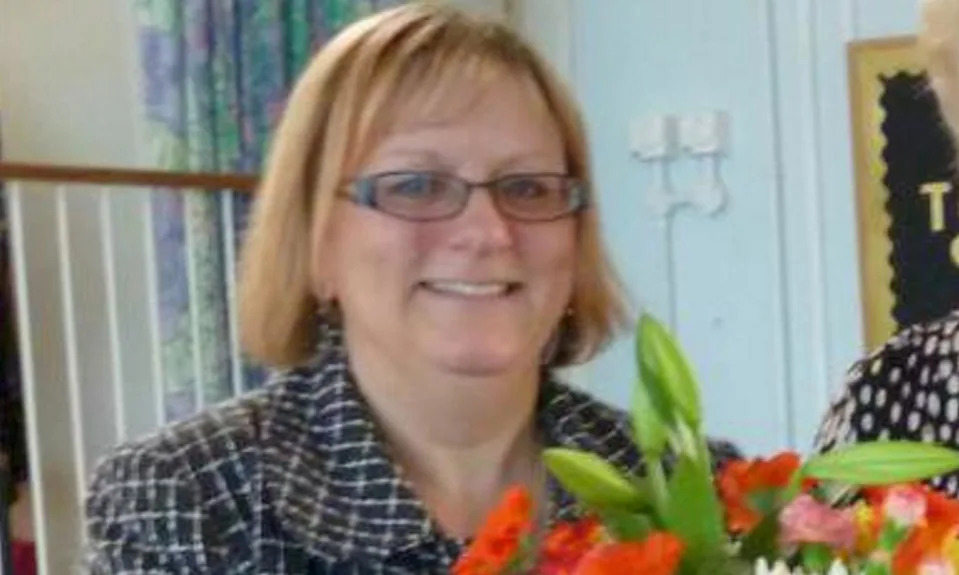UK
Revealed: stress of Ofsted inspections cited as factor in deaths of 10 teachersAnna Fazackerley
Sat, 25 March 2023

Stress caused by Ofsted inspections was cited in coroners’ reports on the deaths of 10 teachers over the past 25 years, the Observer can reveal.
The research, by charity the Hazards Campaign and the University of Leeds, will intensify what Ofsted has called the “outpouring of anger” in the sector over the death of Berkshire headteacher Ruth Perry, who killed herself in January. Her family have attributed her death to the inspectorate having downgraded her school. Education unions called last week for all inspections to be halted.
It comes as an Observer investigation has found that the pressure of school inspections has led to headteachers suffering heart attacks, strokes and nervous breakdowns, and as a helpline for heads reports that the vast majority of crisis calls it receives are now about Ofsted.
Andrew Morrish, a former head and co-founder of Headrest, a resource for stressed headteachers, said that after being told by inspectors that their schools were being downgraded or graded inadequate, heads had “left school in an ambulance”, suffering panic attacks, heart attacks or strokes brought on by stress.
Carol Woodward, the award-winning head of Woodford primary school near Plymouth, took her own life in 2015, shortly after Ofsted downgraded her school. According to the coroner’s report, she contacted her GP prior to her suicide and told him that the school had failed its inspection and let everyone down. The police reported that she experienced “a swift mental decline” after the inspection, and the coroner said: “She just felt she was under so much pressure.”
The inquest into her death heard that the inspection had coincided with disruptive building work to expand the school and that Woodward had been under intense pressure. Police investigating her death said the inspection had been “completed in a fair manner but the timing, without assigning culpability, was wrong”.
If you’re told it’s inadequate, that can be devastating. But you can’t tell your staff or your family
Andrew Morrish, helpline co-founder
Frances Carr, who was both a teacher and a parent at the school, told the Observer that Woodward had been a “brilliant” head, who created a “real family feeling in the school”. She recalled: “As parents, we decided to tell our children that Carol had died of a broken heart. It’s not the whole truth, but one my seven-year-old could accept.”
Commenting on the death by suicide of another headteacher the day before inspectors were due to visit his school, the coroner leading the inquest said: “We can’t exclude the proximity of the Ofsted inspection to the date of his death.” He concluded that the impending inspection had “triggered off the action he decided to take”.
A third coroner’s report shows that a teacher who took her life had been suffering from depression and that an Ofsted inspection placed her under increased pressure. The coroner said it was an “absolute tragedy” that inspections should cause such a degree of stress.
Health and safety expert Hilda Palmer, who has been researching work-based suicides for the Hazards Campaign, said: “These figures are absolutely disgusting. When there are lots of suicides relating to one factor or one organisation, that needs to be investigated urgently.”
Morrish, who is a former inspector himself, said many heads were terrified of inspections that could be “inconsistent and flawed”, and that “virtually every single call we get now is related to Ofsted”.
He added that when, at the end of the inspection, the lead inspector summons the head, the chair of governors and usually another senior leader to deliver their verdict, they insist on it being kept confidential. “If you’re told it’s inadequate, that can be devastating,” he said. “But you mustn’t tell your [junior] staff or your family. It can be two or three months until the report is finalised.”
He added: “Ruth Perry had to go through the whole of Christmas and New Year knowing her school was going to be inadequate and not able to talk to even her sister about it.”
Former inspectors told the Observer that Ofsted teams had limited time to reach their conclusions. A director of education at an academy trust who resigned as an inspector because he felt the system was so flawed, described walking around a school making factual notes on an electronic form. Speaking on condition of anonymity he said: “You then have a block of five minutes at the most to evaluate that evidence. It’s not enough time to say, with any security, that a school is good or inadequate.”
A second former inspector and headteacher, who also asked not to be named, said: “It is a completely subjective judgment, dressed up as an objective one.” She said the lead inspector would typically make up their mind in the first 10 minutes, “and everything else is about justifying that”.
She recalled taking part in inspections where the head was “devastated” after being told they would be downgraded. “As a head your name is on that report for ever,” she said.
Paul Garvey, a former inspector who now advises schools on how to navigate Ofsted, said: “Time and time again I’ve heard from heads who say the inspector has come in with a hostile agenda.”
Amanda Spielman, chief inspector for schools in England, said on Friday that she was “deeply sorry” about Perry’s tragic death. But she said “stopping or preventing inspections” would not be in children’s best interests.
She said the debate about reforming single-word grades on inspections was “legitimate”, but added: “They give parents a simple and accessible summary of a school’s strengths and weaknesses. They are also now used to guide government decisions about when to intervene in struggling schools.”
No comments:
Post a Comment